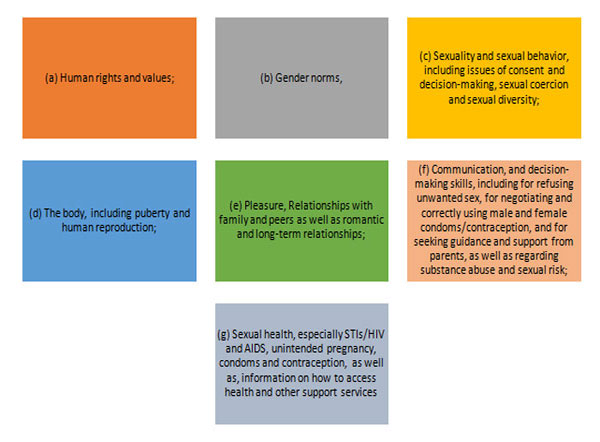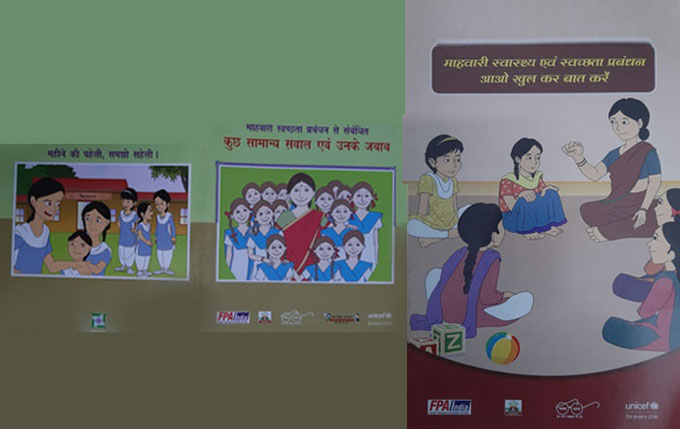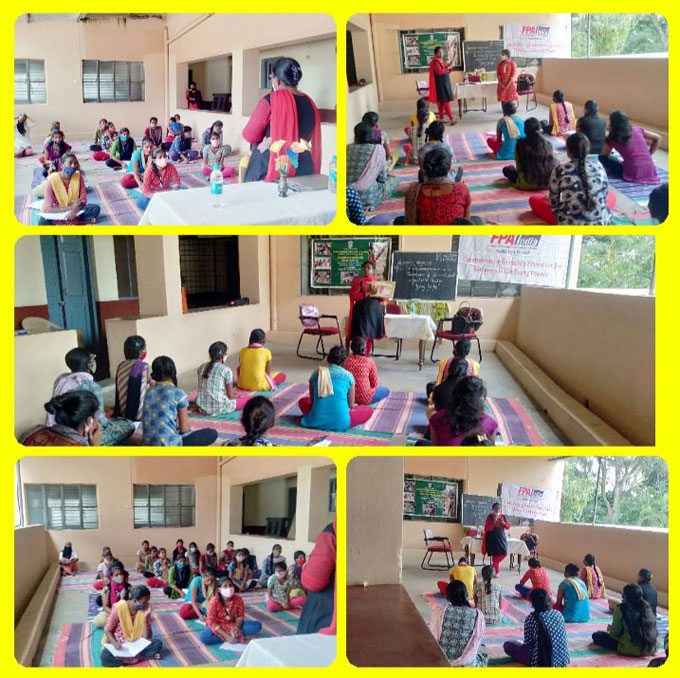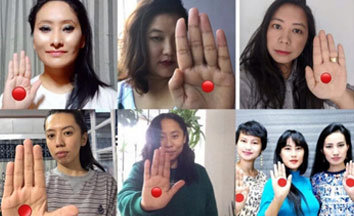Young people
Youth
India’s median age, according to the Census 2011, is 24 years. Half of India’s population is below 25 years; around 32 percent are in the 10-24 age group. India’s young population is growing at an accelerating rate. This group is more literate than the earlier generation and is aspirational, and has more access to information. This group is also the most vulnerable due to a myriad of factors that affect their health and safety. Nutritional disorders (both malnutrition and over-nutrition), tobacco use, harmful alcohol use, other substance use, high risk sexual behaviours, stress, common mental disorders, and injuries (road traffic injuries, suicides, violence of different types) specifically affect this population and have long lasting impact.
FPAI India reaches out to Young People with information, counseling and youth friendly SRH services. Increasing access to Comprehensive Sexuality education for enabling young people to exercise their sexual reproductive right is a strategic priority for the Association. Comprehensive Sexuality Education (CSE) emphasizes a holistic approach to human development and sexuality.
The CSE programme of FPA India caters to young people between the ages of 10-24 years, both in the formal settings of schools/colleges and those who are out-of-school, especially the vulnerable and marginalised living in rural/remote areas and slums, young people with a low socio-economic status, unmarried young people, newly married young people, young people living with HIV and very young people (10-14 years). Interventions are also for school authorities, teachers, community leaders and parents are also engaged with, to get their buy-in for implementing the CSE programme, for enabling them to adopt positive, non-judgemental and supportive roles to guide adolescents and also to equip some of them as CSE trainers. NGOs/CBOs are partnered with to enable CSE and expand our reach to young people. The Peer Education approach has been particularly effective in covering a larger number of young people.
In keeping up with the current times, the Association is also exploring the use of digital media and web-based interfaces to facilitate Online CSE.
The seven modules of CSE are designed to provide young people with scientifically accurate, culturally and age-appropriate, gender-sensitive knowledge and life-skills to make informed decisions about their sexuality and lifestyle.
‘Growing up is Fun’ Module
FPA India has also developed the ‘Growing up is Fun’ curriculum specially to deliver CSE sessions for the very young adolescents in the 10-14 year age group.

Empowering adolescents and communities to promote Menstrual Hygiene Management

In Jharkhand we are implementing UNICEF project on Menstrual Health Management. This project aims to build capacities of 203 Nodal Teachers from Kasturba Gandhi Balika Vidyalaya’s (KGBVs) in 24 districts, on using Menstrual Hygiene Management (MHM), Communication and Life Skills Toolkit. This programme is targeted to reach out to Adolescent Girls through KGBVs in selected districts- Ranchi, Ramgarh and West Singbhum (high tribal population) whereas Godda and Girdih have a high Scheduled Caste population. Apart from a large population of tribal and OBC communities, social indicators like education and health aren’t given much attention.
The MHM programme revolves around the idea of empowering adolescent girls through access to information and knowledge. It focuses on enabling adolescent girls to address social norms and practices including restricted access to educational and skill development opportunities. By developing a thorough understanding about MHM, teachers, parents and front line workers will support adolescents in seeking information, accessing services, encouraging decision making and play a key role in creating a protective and supportive environment. Through Jal Sahiyas and CSO’s, the programme also intends to reach out to a larger community including men and boys in order to include them as a support group for addressing issues around MHM.
5 Scaling up delivered and enabled CSE

In an effort to step-up comprehensive sexuality education to young people, FPA India has launched the ‘Scaling up Delivered and Enabled CSE project” through 10 Branches- Ahmedabad, Agra, Panchkula, Gwalior, Nagaland, Kalchini, Murhu, Pune, Madurai and Dharwad. Each branch works with 20 schools/colleges and 5 NGOs to increase access to CSE for 90,000 young people by –
- Delivering CSE through trained resource persons in schools and colleges and also in non-formal settings.
- Training partner NGOs by the cascade training approach on CSE
Nagaland branch special activity in Covid period
Though outreach activities were paralyzed due to the pandemic, the branch utilized the online platform to implement minimal activities for the young people. The branch conducted competitions namely Poetry on Menstruation, Top Acts and Mobile Film Competitions on Environment. The youth showed much interest in the online activity and there were positive responses.



